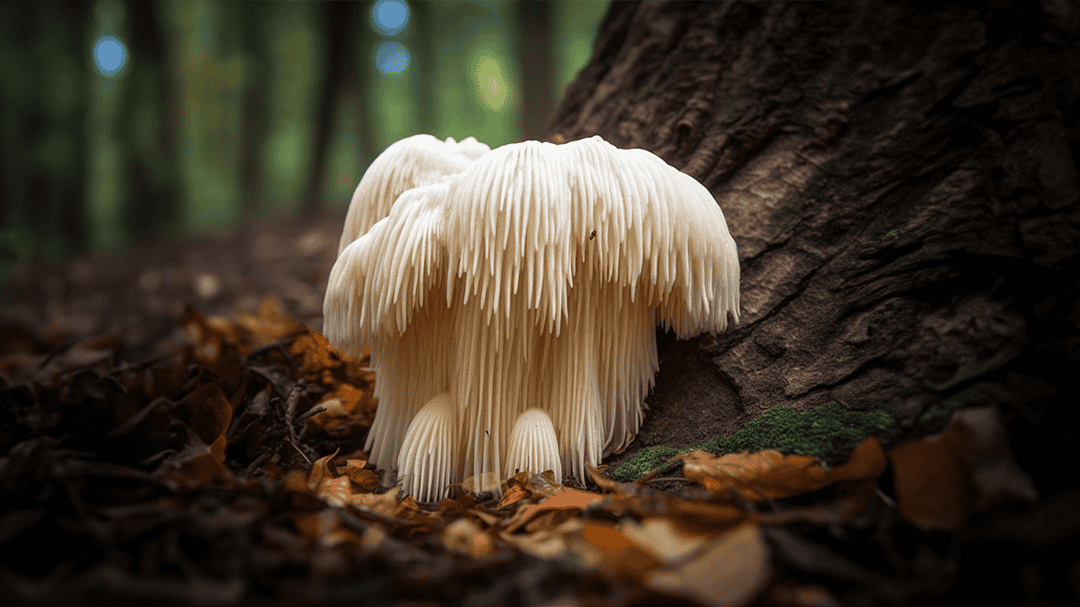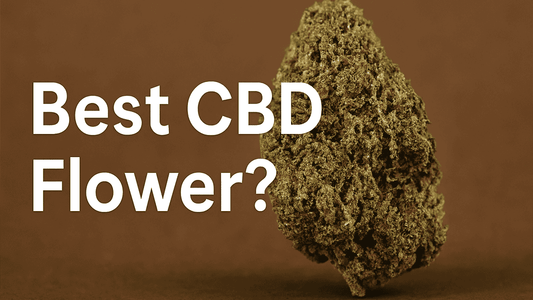Join us on a journey to explore the world of Lion's Mane mushroom. From its historical roots in ancient wellness practices to its contemporary role in supporting cognitive function, mood enhancement, and anti-inflammatory properties, this remarkable herb offers a fascinating glimpse into the power of natural remedies.
What is Lion's Mane Mushroom?

Lion's Mane (Hericium erinaceus) is an edible and medicinal mushroom revered for its neuroprotective effects. Studies show its efficacy in treating conditions like motor dysfunction, Alzheimer's disease, and other dementia forms. Discover more about this fascinating fungus at our Mushroom Collection.
Lion's Mane Key Benefits

- Cognitive Health: Lion's Mane has shown promising results in improving cognitive function. A study indicates its potential to enhance the speed of performance in healthy young adults (PubMed).
- Mood and Stress: It may also aid in reducing subjective stress, as observed in a pilot study involving healthy individuals (PubMed).
- Neurotrophic Effects: Compounds in Lion's Mane, like hericenones and erinacines, can induce nerve growth factor synthesis, which is vital for brain health (PubMed).
Lion's Mane as a Supplement

Lion's Mane is available in various supplement forms:
- Powder: A versatile option to mix with food or drinks. Check out Lion's Mane Mushroom Powder.
- Capsules: Lion's Mane Capsules are an excellent choice for those preferring a precise dosage.
- Coffee: A unique and refreshing way to enjoy Lion's Mane. Mix Lion's Mane powder into your morning brew.
Understanding the Side Effects of Lion's Mane Mushroom

While Lion's Mane mushroom is celebrated for its health benefits, it's crucial to approach its use cautiously, especially for specific individuals. A lot is known about the comprehensive safety profile of Lion's Mane, making it essential to consult with a healthcare professional before incorporating it into your diet, mainly if you are on medication.
Most research on Lion's Mane has been animal-based, leaving its full effects on humans somewhat unclear. Additionally, regulatory guidelines on the acceptable types and parts of this fungus for food or supplement use vary, so it's advisable to be discerning about the products you choose.
Allergic reactions are a potential risk, as with any food item. If you experience any adverse reaction or are already aware of a mushroom allergy, it's best to avoid Lion's Mane. Some people may experience mild stomach discomfort, underscoring the importance of adhering to safe dosages and recommended serving sizes, typically mentioned on product packaging.
Pregnant and breastfeeding individuals are advised to avoid Lion's Mane due to insufficient information regarding its safety in these conditions.
Cooking with Lion's Mane

Lion's Mane is versatile in the kitchen. It's suitable for various cooking methods and is available in fresh, dried, or powdered forms. Fresh mushrooms work well for frying or grilling, while powders are ideal for broths, drinks, or baking. Lion's Mane offers a delicate flavour and meaty texture reminiscent of seafood when cooked. This adaptability extends to its consumption raw, cooked, in tea, or dried, providing a range of culinary options to explore.
Locating Lion's Mane in the Wild

Finding Lion's Mane mushrooms in their natural habitat can be a rewarding experience for foraging enthusiasts. This unique mushroom, known for its hairy, white appearance resembling a lion's mane, typically grows in the wild on hardwood trees.
Tips for Successful Foraging:
- Habitat: Look for Lion's Mane in wooded areas, particularly on dead or dying hardwoods like oak, walnut, or beech.
- Season: They are most commonly found in late summer to fall.
- Identification: Lion's Mane is distinctive with its long, white spines and lack of a traditional mushroom cap.
- Safety: Always exercise caution when foraging for wild mushrooms. Misidentification can lead to consuming toxic species.
How Lion's Mane Is Made

- Harvesting: The first step is harvesting the Lion's Mane mushrooms at their peak, ensuring they are mature and high-quality.
- Cleaning and Drying: The mushrooms are then carefully cleaned and dried. Drying can be done through air-drying or specialized equipment to remove moisture while preserving the nutrients.
- Grinding: Once dried, the mushrooms are ground into a fine powder. This powder is the basis for both capsule and powder supplements.
- Encapsulation: For capsule supplements, the powder is then filled into capsules. The capsules can be made of gelatin or a vegetarian substitute.
- Packaging: Finally, the capsules or powder are packaged, often with moisture-absorbing packets, to maintain freshness.
Conclusion
Lion's Mane mushroom is a remarkable natural entity with various health benefits. Empirical studies suggest its potential in safeguarding against dementia, alleviating symptoms of anxiety and depression, and aiding in nerve regeneration. Beyond cognitive health, Lion's Mane boasts anti-inflammatory, antioxidant, and immune-enhancing properties, showing promise in reducing risks associated with heart disease, cancer, ulcers, and diabetes, albeit in animal studies.
Though current research is encouraging, more human-centric studies are needed to harness Lion's Mane's therapeutic potential fully. Lion's Mane remains a beacon of natural health and wellness as we await further insights.

 4.6 Rating. Excellent.
4.6 Rating. Excellent.




